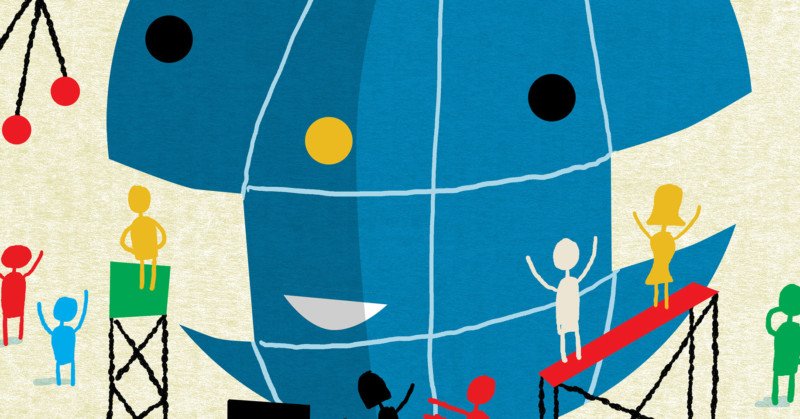Building a More Honest Internet - Columbia Journalism Review

my notes ( ? )
In the US, radio began as a free-market free-for-all. More than five hundred radio stations sprang up in less than a decade to explore the possibilities... 40 percent were noncommercial... network of interlinked stations playing local and national content supported by local and national advertising, became dominant players...
Soviet Union... ideology prevented ... commercial broadcasting, and state-controlled radio quickly became widespread... a way to align the political thinking of a vast land populated primarily by illiterate farmers... once private radios became available, “wired radio”... connected virtually every building in the country...
United Kingdom ... eschewing the extremes... the British Broadcasting Company was licensed to broadcast content for the nation... [with] a built-in revenue stream... ... to be the British citizen’s “guide, philosopher, and friend,”... mouthpiece of an empire ... socially conservative and high-minded... moralistic and boring. But it also invented public service media... earned credibility by giving airtime to both government and opposition leaders... becoming one of the most reliable sources of information in the world.
Those models... offer a helpful road map as we consider ... the rise of the commercial internet...there are significant flaws in the global model... “surveillance capitalism”... social-media networks ... addictive sources of unregulated information that are easily weaponized...
public service digital media may be what we need... the current model of the internet is not inevitable... in China... unfettered capitalism of the US internet is blended with tight state oversight... state-backed censorship and surveillance baked in... The second alternative model is public service media... Of the world’s top hundred websites, Wikipedia is the sole noncommercial site. If the contemporary internet is a city, Wikipedia is the lone public park; the rest of our public spaces shopping malls... Wikipedia’s method of debating its way to consensus... a “neutral point of view” ... proved surprisingly durable...
public service media... fill a void in the marketplace... by the early 1970... PBS and NPR were bringing Sesame Street and All Things Considered to the American public... A public service Web invites us to imagine services that don’t exist... not commercially viable... perhaps should exist... fill a black hole of misinformation with educational material and legitimate news...
to avoid a world in which Google throws our presidential election... allow academics or government bureaucrats to regularly audit the search engine [or] create a public-interest search engine with audits built in...
social platforms may be increasing political polarization, straining social ties, and causing us anxiety ... creating “filter bubbles” ... in part, a fault of its financial model... the platform optimizes for “engagement,”... a disincentive to challenge users ... the stories that Facebook is built to direct our attention to... reinforce existing prejudices and inspire emotional reactions...
imagine a social network designed... encourage the sharing of mutual understanding rather than misinformation?... encourages you to interact with people with whom you might have a productive disagreement... measure success in terms of new connections, sustained discussions, or changed opinions... wouldn’t be commercially viable... precisely why public service models exist: to counter market failures....
It’s hard to tear users away from a platform they are already accustomed to... if you do gain momentum ... Facebook will likely purchase it... mandate of interoperability... we could build social media browsers that put existing social networks, and new ones, in the same place
Read the Full Post
The above notes were curated from the full post www.cjr.org/special_report/building-honest-internet-public-interest.php.Related reading
More Stuff I Like
More Stuff tagged social media , media , filter bubble , wikipedia , disinformation , interoperability , indieweb , radio , publicsphere , open web
See also: Content Strategy , Fediverse , Online Community Management , Social Media Strategy , Content Creation & Marketing , Social Web , Media , Politics , Science&Technology